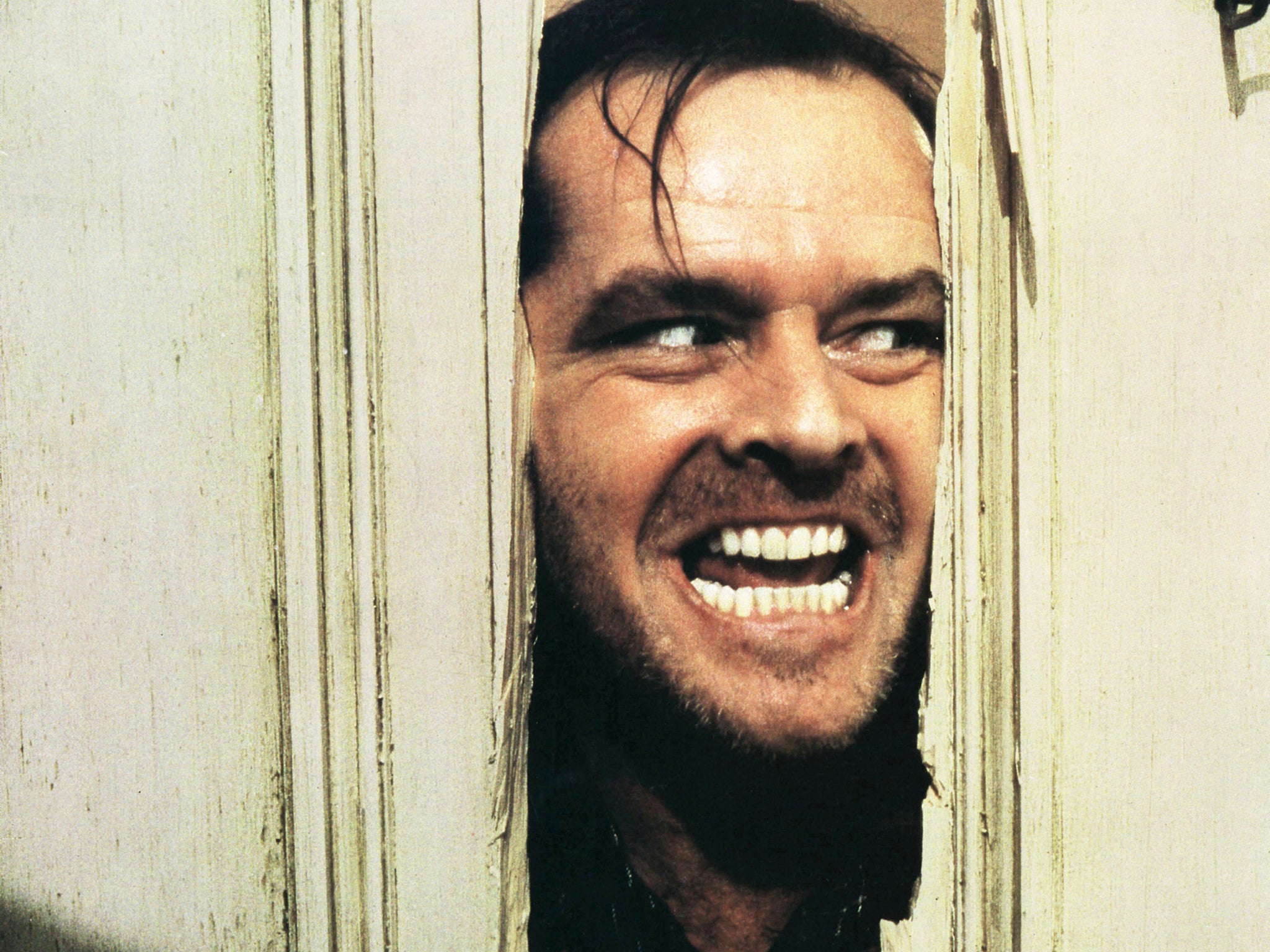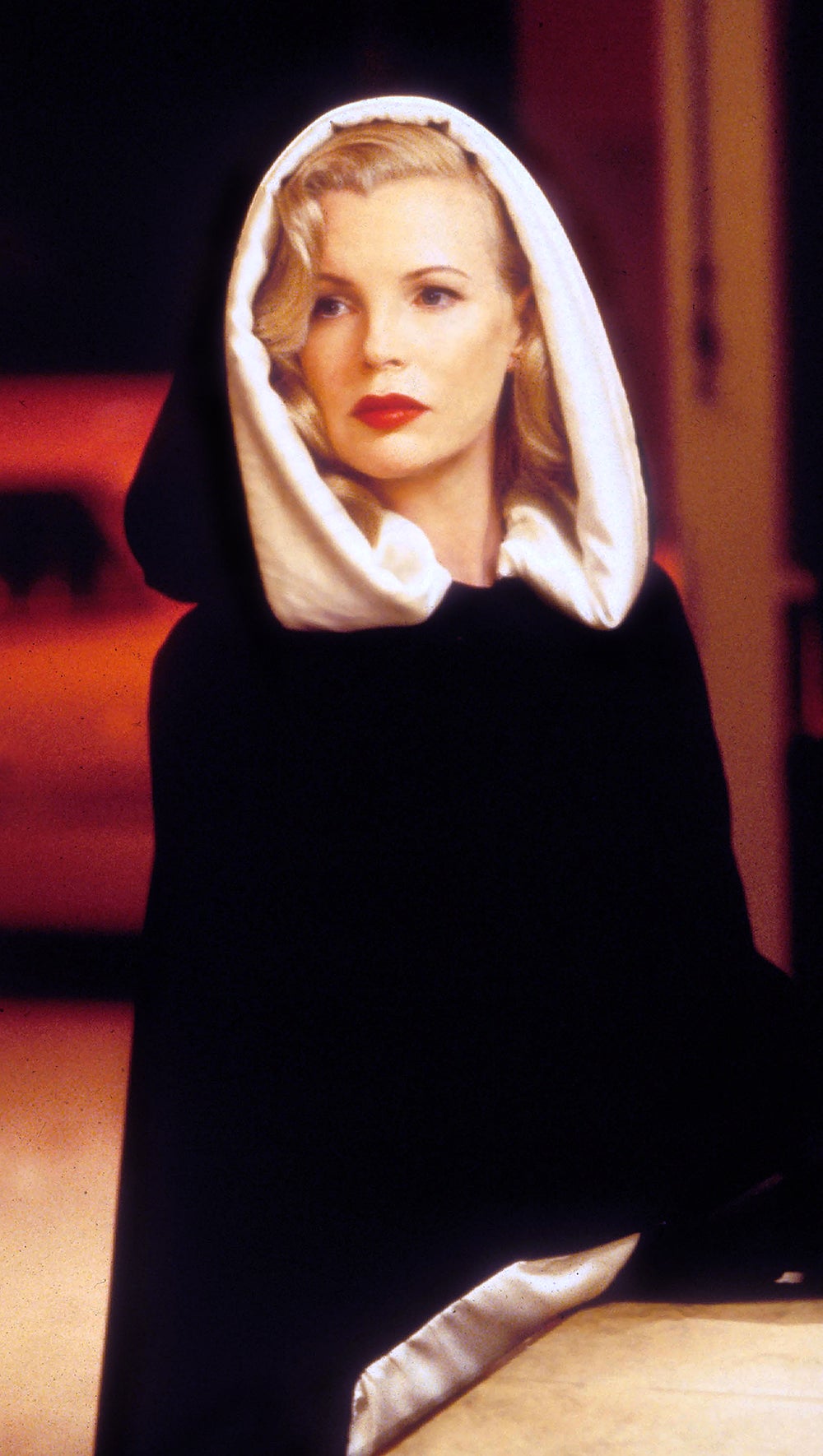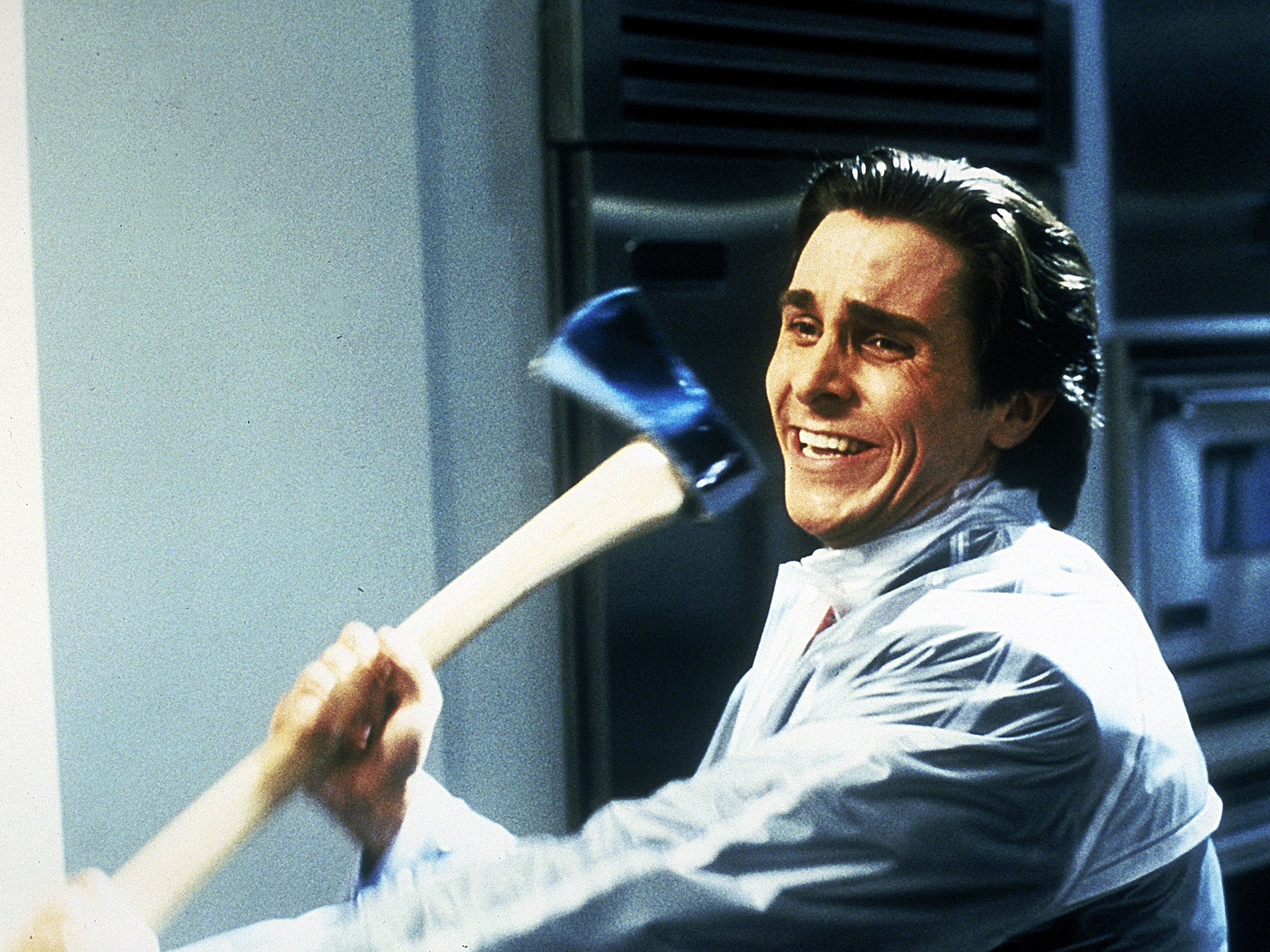‘It made me want to throw up’: When novelists hate the film adaptations of their books
As James Ellroy continues to bad-mouth the 1997 adaptation of his hit noir novel ‘LA Confidential’, Geoffrey Macnab salutes Hollywood’s long history of writers who signed over the film rights to their books, only to be embarrassed by the resulting movies

I think it’s turkey of the highest form,” the US crime writer James Ellroy recently said about Curtis Hanson’s 1997 movie adaptation of his 1980 novel, LA Confidential. Ellroy had decided he could be frank because its director Hanson is long since dead.
It’s easy enough to understand why the novelist didn’t like the film. Ellroy’s books come from very dark places. They’re morbid, violent and full of seedy, voyeuristic sex. By contrast, Hanson’s movie – which most critics loved and won multiple Oscar nominations – was shot in iridescent colour and was strangely upbeat in spite of a storyline dealing with dope, rackets, prostitution and extreme police corruption. The film seemed to take its tempo from Danny DeVito’s cheery voiceover narration, the actor playing the editor of a very trashy, National Enquirer-style tabloid.
Ellroy also didn’t like two of the film’s leads, complaining that Russell Crowe was “impotent” as the rugged cop Wendell “Bud” White, and that he didn’t think much of Kim Basinger in the role of high-class call girl, Lynn Bracken. The real problem, though, was that Hanson made the three main characters – Office White and the detectives played by Guy Pearce and Kevin Spacey – so likeable that audiences ended up identifying with them as if they were traditional movie heroes. Ellroy had created them as deeply flawed characters. He certainly didn’t want them to be ingratiating.
This isn’t the first time Ellroy has attacked the film. “It’s about as deep as a tortilla,” he said in 2019. “It doesn’t make dramatic sense.” At least he was gracious enough to acknowledge that he was “paid some good dough” for the movie rights. In signing them over, he was striking that Faustian pact with Hollywood, which so many other authors have also struck before and since. Authors know that their books are almost certain to be adapted in a way that will displease them, but they hold their noses, swallow their pride, take the money and run. Not only do they get their fee, their novels will often be reissued as movie tie-in versions, generating more royalties for them. What they have to give away in return is a little bit of their integrity and all of their artistic control.
“The day I signed the contract they turned around and did exactly the reverse,” writer Truman Capote once complained, after Paramount Pictures made its very glossy adaptation of his novella, Breakfast at Tiffany’s. “They got a lousy director like Blake Edwards who I could spit on. It was the most miscast film I have ever seen. It made me want to throw up.” As Tison Pugh explains in his book Truman Capote: A Literary Life at the Movies, Capote lobbied hard for Marilyn Monroe to play his heroine Holly Golightly, but Audrey Hepburn was chosen instead.
“The transposition of one art form into another seems to me a corrupt, somewhat vulgar enterprise,” Capote added. “Nature being what it is, these experimental inbreedings must logically make for Cretin offspring. Why can’t a novel be simply a novel, a poem a poem?” He concluded that movie adaptations of literary novels were a bad idea all round. Not that it stopped him from flogging his stories to Hollywood or from writing screenplays based on other writer’s books, for example his work on the script of Jack Clayton’s The Innocents (1961), which was based on Henry James’s novella, The Turn of the Screw.
“Mary Poppins” was Disney through and through, spectacular, colourful, gorgeous but all wrapped around mediocrity of thought [and] poor glimmerings of understanding
Stephen King is another author who has been outspoken about screen versions of his novels – even after granting rights to filmmakers to adapt them. He disliked Stanley Kubrick’s approach to The Shining (1980), telling journalists that the director was trying to make a horror film with “no apparent understanding of the genre”. He conceded the Kubrick picture was handsomely made but likened it to “a great big, beautiful Cadillac with no motor inside”.
He also wasn’t a fan of Firestarter (1984), another adaptation of one of his novels, in which Drew Barrymore played an eight-year-old girl with the power to set things ablaze. “It’s like cafeteria mashed potatoes,” he complained, while expressing his bewilderment over Barrymore’s hair beginning to swirl every time she made use of her pyrotechnic gifts.
In the family film arena, PL Travers was deeply suspicious about the makeover that Walt Disney gave her most famous literary character, Mary Poppins. Disney made Travers very rich, but took her creation away from her in the process. As Valerie Lawson wrote in her biography of the novelist, the Hollywood mogul “did not just buy the Mary Poppins story but swallowed it whole, as a shark takes a minnow. It became, officially, ‘Walt Disney’s Mary Poppins.’”
The author was consigned to the role of ‘consultant’ and most of her suggestions for the movie were roundly ignored. “The two conditions on which she would not budge were that the film be set in the Edwardian period, and that there be no love affair between Mary and Bert, the pavement artist,” Lawson writes. Disney respected her wishes, but even then Julie Andrews’ nanny and Dick Van Dyke’s chirping chimney sweep were “too close for her liking”.
The film turned into a huge hit. Travers basked in its financial success but confided to her London publisher that it was “Disney through and through, spectacular, colourful, gorgeous but all wrapped around mediocrity of thought [and] poor glimmerings of understanding”. She didn’t like the animated penguins or the songs, either.
The story of the vexed relationship between Disney and Travers is told on screen in Saving Mr Banks (2013), starring Tom Hanks and Emma Thompson. This was Disney-backed and therefore a somewhat sanitised version of the tale, but it still stands as a case study of the agonies authors endure when they see their work being bowdlerised by big, bad movie producers like Uncle Walt.

Very occasionally, novelists somehow manage to hold on to the whip hand. One of the most notable and surprising examples of this is JK Rowling with the Harry Potter films. She was the impoverished single mum who wrote the early drafts of her first Potter novel longhand in Edinburgh cafes, yet when Warner Bros made the Harry Potter movies, they remained remarkably faithful to the writer’s vision. The filmmakers had realised that the fans of Rowling’s books would be appalled if they deviated too far from her original vision. She had no contractual rights over the movie, but the producers were far more accommodating to her than Disney had been to PL Travers.
Rowling was consulted about almost every aspect of the Hogwarts universe on screen. She provided the quality control that ensured the films lived up to the expectations of those who had so loved the books. “What makes her extraordinary is the instant knowledge of this world, this universe she has created in the books,” one former Warner Bros exec told me of Rowling’s microscopic attention to detail. “One moment she’s a perfectly normal person walking down the street, going shopping, but when she is talking about the books, she can snap into that world, rather as I suspect Dickens did.”
Literary fiction is notoriously hard to adapt for the screen. As Bret Easton Ellis noted of his novel American Psycho, “that book is unadaptable because it’s about consciousness, and you can’t really shoot that sensibility.” In 2000, American Psycho was successfully adapted for the screen by Mary Harron, with Christian Bale as the yuppie psychopath Patrick Bateman. But the author felt the screen version was only a rough approximation of the book he had written. “You’re getting a watered down, secondhand version of it, in a way,” he once said. “If you’ve written a novel, you’ve written a novel because it is a novel.”
One or two other writers have admitted that movie adaptations take their work into a new realm where literature simply cannot venture. “Books may still be read in vast numbers, but films are dreamed,” the sci fi-writer JG Ballard once said, when discussing the collective psychic power of cinema.

Critics talk of the axiom that “great novels make bad movies”. There are plenty of examples to support this thesis. Tom Wolfe’s The Bonfire of the Vanities was regarded as the quintessential 1980s novel, exposing racism, snobbery and greed among Wall Street bond traders and bankers. The Brian De Palma movie which followed, in 1990, was a box office disaster that the critics hated. Distilling Wolfe’s sprawling book into a two-hour movie was beyond the filmmakers’ capabilities. There are many more like this. “A botch job for the ages,” was Rolling Stone’s verdict on John Crowley’s 2019 adaptation of Donna Tartt’s Pulitzer Prize winning novel The Goldfinch, about a teenage boy’s life being derailed by terrorism.
Look through the list of Booker prize winners over the last 40 years and you’ll find relatively few that have spawned successful movies. The English Patient, Life of Pi, The Remains of the Day and Schindler’s List are the exceptions. Some of the others have been made into hit TV series, for example Hilary Mantel’s Wolf Hall, but many have either been ignored by filmmakers or been adapted unsuccessfully in screen versions that have sunk without trace.
Not that the authors suffer when the films flop. They rarely take the blame. Ellroy, with LA Confidential, is one of the lucky few who has had a successful novel spawn a hit movie. “We thought this f***er was adaptation-proof,” he once said. “It was big, it was bad, it was bereft of sympathetic characters.” When the adaptation actually happened, he hated it all the way to the bank. A quarter of a century later, the film he dislikes so much is still turning new readers on to his work. The more he complains about it, the better he does.






Join our commenting forum
Join thought-provoking conversations, follow other Independent readers and see their replies
Comments